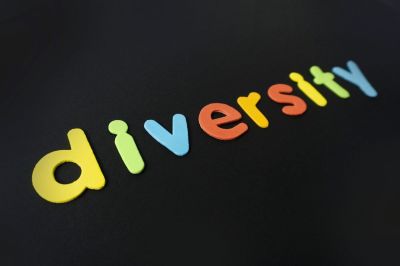Multicultural church counseling: Helpful or hurtful to faith traditions?

The debate surrounding multiculturalism within the Church poses a critical question: does celebrating diverse cultures enhance social unity or risk diluting our faith traditions? At the heart of this discourse is exploring individual and cultural identities. Psychiatrist Daniel Siegel posits that our need for belonging, and connection is embedded in our biology, shaping our collective identity. In his book, City of God, St. Augustine observes the heavenly city, which, while on earth, embraces citizens from all nations and unites a diverse array of pilgrims speaking various languages.
Understanding multicultural counseling necessitates grasping the essence of culture and multiculturalism. Is culture a singular concept or a mosaic of diverse expressions? Social thinker Daniel Bell describes culture as a framework that offers logical responses to existential challenges, molding our understanding of identity, purpose, and meaning. This implies that each person experiences culture uniquely, making multiculturalism highly relevant. Multicultural counseling acknowledges the significance of diverse cultural backgrounds and experiences in understanding individuals and providing practical, culturally responsive solutions to their problems.
Nonetheless, contemporary Christians face the challenge of postmodern ideology’s impact on multiculturalism. Postmodernism emphasizes the relativity of truth, suggesting that all perspectives are equally valid, in direct conflict with the Christian belief in absolute truth grounded in the Bible. However, the Bible transcends all cultures, urging Christians to filter cultural traditions and philosophies through biblical principles (Colossians 2:8). For example, in a culture that esteems individualism, the Bible promotes love for one’s neighbor and community (Mark 12:31). By aligning cultural practices with biblical teachings, Christians can engage in multiculturalism in a manner that respects both their faith and the diversity of human cultures.
Multiculturalism is not just a societal construct, but it is a fundamental part of God’s design. Biblical narratives, from the creation story in Genesis to the prophetic visions in Revelation, consistently portray diversity as an aspect of God’s design. The act of creation is described as God speaking life into existence, transforming darkness into light, and subsequently generating a magnificent array of animals and plants. The skies and seas became vibrant with life, each creature proclaiming God’s boundless creativity. This includes majestic lions alongside delicate butterflies and towering oaks in harmony with gentle wildflowers, all reflecting the depth of His love and artistic brilliance. As the pinnacle of His masterpiece, God molded humanity in His image, creating man and woman in a beautiful display of diversity.
Even after the Fall of Adam and Eve, God promised to restore creation, beginning with Abraham, whom He chose to be the “father of many nations.” In an ancient Greek translation of the Bible, the word for “nations” is “ethne,” meaning different people groups or ethnicities. This concept surpasses unity, celebrating the diversity of people and cultures on earth. Jesus further exemplified this by shattering cultural norms and embracing individuals from all backgrounds, ultimately sacrificing Himself for all humanity. His Great Commission, “to make disciples of all nations,” where “nations” is translated as “ethne,” emphasizes God’s enduring plan for diverse people groups across the globe, culminating in a vision of multiethnic worship before Christ, the Lamb of God.
Multicultural counseling, when filtered through the Bible, becomes not merely a concept or practice but a lived theology anchored in biblical principles, aligning with the mission of the Great Commission and reflecting Christ’s love for all humanity.
This integration of multicultural counseling and biblical principles underwent scrutiny in a small Christian community. A professional counselor, whom we’ll refer to as “Mr. Jones,” sparked debate during a workshop for couples from various ethnic backgrounds. He emphasized the importance of embracing cultural differences within families to strengthen relationships. However, some members questioned its compatibility with their Christian beliefs, fearing it could dilute their faith. Despite efforts to bridge this gap, skepticism persisted among those struggling to reconcile their beliefs with counseling approaches incorporating cultural considerations.
Recognizing different cultures can be challenging, yet it need not conflict with Christian beliefs. Our identities are shaped by God’s design, our upbringing, and our environment. Respecting different cultures requires sharing our uniqueness and recognizing that God’s love transcends cultural differences. By doing so, we honor God’s diverse creation and follow His command to love others.
Returning to the initial question: does celebrating diverse cultures strengthen social cohesion or dilute our faith traditions? From biblical and counseling perspectives, diversity strengthens society. As followers of Christ, we can lead by example in recognizing multiculturalism through God’s Word and integrating cultural considerations into our interactions, including counseling. Diversity is not something to fear, not absolute, but it is a reflection of God’s magnificence. St. Augustine reminds us that the city of God works for earthly peace and calls us not to “scruple over cultural differences as long as they do not hinder the worship of God.”
Multicultural counseling honors the inherent worth of every individual made in God’s image. Therefore, may we worship God, who is worthy of all our praise, and love one another despite our differences, remaining steadfast in our commitment to the Gospel of Jesus Christ.
Selin Philip, PhD, is an associate professor and director of the PhD in Counselor Education & Supervision program at Colorado Christian University. With a background in Theology from New Theological College, Dehradun, India, and a PhD in Counselor Education & Supervision from Regent University, Virginia, she brings expertise in biblical theology and counseling theories. Her research interests include multicultural topics, character development among college students, and healing in diverse populations. As a mental health advocate, she actively promotes mental health awareness in church and ethnic communities, integrating Scripture and scientific research. Through expository teaching, she illuminates Scripture's transformative power, guiding individuals toward holiness and wholeness.




























